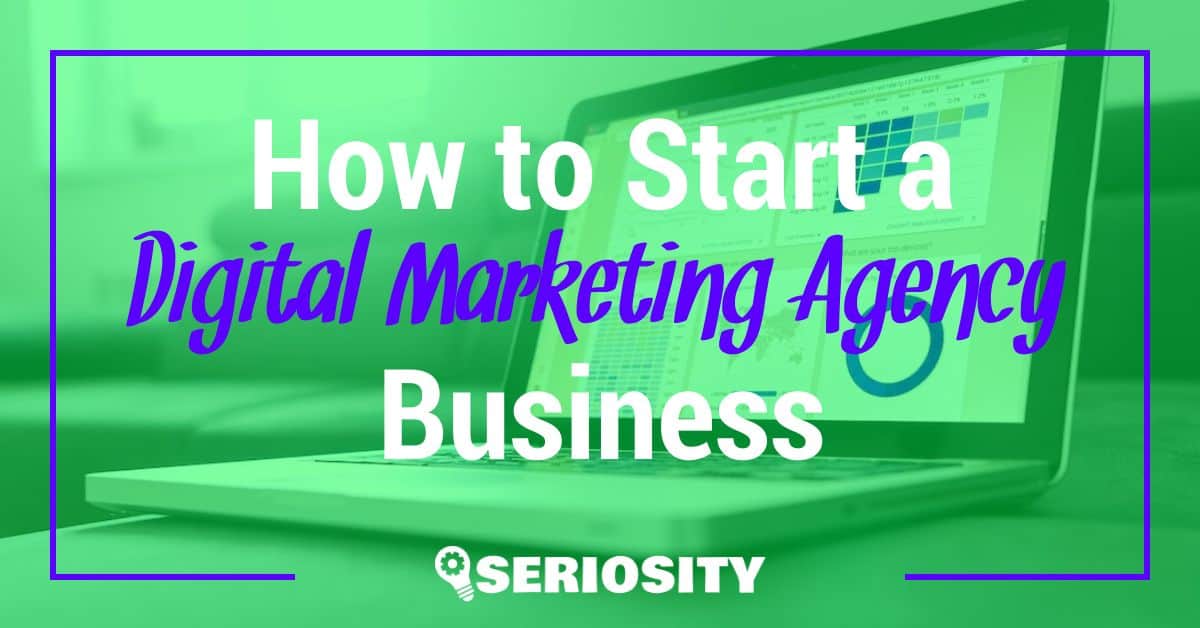In today’s digital age, businesses of all sizes and niches require strong online marketing strategies to grow and reach their target audiences. As a result, starting a digital marketing agency has become an attractive and lucrative venture for those with the required skills and expertise. This article will guide you through the process of launching your own agency, discussing essential aspects like market research, services to offer, and building a strong team.
Before diving into the world of digital marketing, it is essential to have a solid understanding of the industry and its dynamics. Conducting market research is the first important step to establish the demand for digital marketing services and identify potential clients. The more you understand the market, the better you can align your agency’s offerings with the needs of your potential customers.
When starting a digital marketing agency, the next step is to decide on your core services. Specializing in specific services such as SEO, social media management, or content creation can help your agency stand out in the competitive marketplace. It’s crucial to evaluate your skill set and choose services accordingly, allowing you to deliver top-notch quality and drive results for your clients.
Identifying Your Niche
Industry Trends
As you begin to establish your digital marketing agency, it’s crucial to understand the current industry trends. This will help you identify relevant niches where you can excel and provide value to your customers. Examples of ongoing developments in the digital marketing space include:
- The increasing importance of personalized marketing
- The prevalence of social media platforms for marketing and engagement
- The dominance of mobile devices in shaping consumer behavior
By understanding these trends, you can tailor your services to meet the demands of businesses operating within a particular niche.
High Demand Niches
Certain industries have proven to be particularly favorable for digital marketing agencies, showing consistent demand for digital marketing services. Some high-demand niches include:
- Healthcare
- E-commerce
- Real estate
- Restaurants and food services
- Finance and insurance
Focusing on one or more of these sectors increases your likelihood of finding success, as these industries are known for consistently seeking online marketing expertise.
Competitive Market
It’s essential to consider the level of competition in your chosen niche in order to position yourself favorably. A highly competitive market may prove challenging, especially for new digital marketing agencies. When choosing your niche, consider:
- The number of competitors in the niche
- The average size of competitors (larger firms versus smaller agencies)
- The kinds of services offered by competitors
A balanced view of the competition will allow you to differentiate your agency and choose a niche where your unique offerings can gain traction.
The key to creating a successful digital marketing agency is in focusing on a niche that aligns with your interests, expertise, and market demand while keeping a close eye on industry trends and competition. By choosing smartly, your agency will be well-equipped to excel in the digital marketing landscape.
Creating a Business Plan
Defining Services
When starting a digital marketing agency, it’s essential to define the services you’ll offer. Consider your team’s strengths, experience, and the market’s demand. Some common digital marketing services include:
- Social Media Management
- Search Engine Optimization (SEO)
- Content Marketing
- Email Marketing
- Paid Advertising (PPC)
- Web Design & Development
Create a list of services you can effectively deliver and decide if you’ll offer them as standalone services or bundled packages.
Targeting Customers
Identifying and targeting your ideal customers is crucial to the success of your marketing agency. Conduct market research to understand the industries and sizes of businesses that could benefit from your services. Consider the following factors to target the right clientele:
- Industry segments with high demand for digital marketing services
- Business size and budget
- Geographical location and target audience
- Existing clients in your portfolio
Create a profile of your ideal client and focus your sales and marketing efforts on attracting businesses that fit this profile.
Setting Goals
Establishing specific, measurable, attainable, relevant, and time-bound (SMART) goals is an essential part of your business plan. It helps you stay focused and track the progress of your digital marketing agency. Some possible SMART goals include:
- Achieving a specific dollar amount in sales within 12 months
- Securing a specific number of clients within 6 months
- Increasing website traffic by a certain percentage within 3 months
Setting achievable goals will help you stay on track and motivate your team to reach new heights.
Building Your Brand
Building a strong brand is essential for a new digital marketing agency. A well-established brand helps to grow your business, increase online presence, and attract clients. This section will discuss the necessary steps to building your brand, focusing on these three sub-sections: Domain Name, Logo and Graphic Design, and Social Media Presence.
Domain Name
One of the first steps to building your brand is choosing a unique and memorable domain name. Your domain name serves as the address for your website, so it should be easy for potential clients to find and type. Consider the following when selecting a domain name:
- Choose a domain that reflects your agency’s name, services, or values.
- Keep it short, simple, and easy to remember.
- Avoid generic terms and choose a domain extension that best suits your target audience, such as .com for national or international clients or .countrycode for local clients.
- Make sure the domain name is available and not already owned by another company.
Logo and Graphic Design
A professional logo and graphic design are crucial elements in establishing brand identity. Your logo should represent your digital marketing agency’s services and values, creating a lasting impression on clients. When designing your logo and associated graphics, consider the following tips:
- Choose colors that evoke your brand’s personality and emotions.
- Use a unique and memorable design that stands out from the competition.
- Ensure your logo is scalable, for use on various mediums like websites, social media, and print materials.
- If possible, work with a professional graphic designer for a polished and impactful final product.
Social Media Presence
In today’s digital world, having a strong social media presence across various platforms is crucial to establishing your brand and building an online community. A well-planned social media strategy allows you to showcase your expertise, engage potential clients, and foster long-term relationships. Keep these points in mind when building your social media presence:
- Select the social media channels most relevant to your target audience and focus your efforts on those.
- Ensure your profiles are complete and consistent with your brand’s identity, such as using the same logo, colors, and tone of voice.
- Post regular updates and valuable content that reflects your agency’s expertise.
- Engage with your audience by responding to comments or questions, and fostering a sense of community.
- Implement search engine optimization techniques to increase the visibility of your social media profiles.
By following these steps, you can successfully build your digital marketing agency’s brand, creating a lasting impression on clients and a strong online presence.
Assembling a Team
Hiring Freelancers
When starting a digital marketing agency, it’s beneficial to consider hiring freelancers to help you build a team of skilled professionals. Hiring freelancers can provide flexibility, as they can work on a project-by-project basis and are often specialized in their respective fields. To hire the right freelancers, consider the following steps:
- Identify the skills your business model requires and create a list of freelancers with these skill sets.
- Use platforms like Upwork, LinkedIn, or Freelancer.com to find qualified freelancers.
- Conduct interviews and select the best candidates based on their expertise, experience, and communication skills.
Outsourcing Tasks
Outsourcing specific tasks or entire projects can be an efficient and cost-effective way to grow your digital marketing agency without increasing overhead costs. This approach can help you focus on core business functions while leveraging external resources for specialized tasks. To successfully outsource tasks, keep these tips in mind:
- Determine which tasks can be outsourced by considering your team’s strengths and weaknesses.
- Partner with reputable agencies or platforms that provide outsourcing services.
- Establish clear communication and reporting systems for the outsourced tasks.
Managing Resources
Effectively managing resources is crucial for successfully running a digital marketing agency. This includes both financial and human resources, such as overseeing budgets, employee workload, and project timelines. To manage resources efficiently, implement the following strategies:
- Monitor project progress using project management tools like Trello, Asana, or Basecamp.
- Evaluate individual team member performance and provide feedback to help them improve.
- Streamline communications using messaging apps like Slack or Microsoft Teams.
- Review budgets and allocate resources accordingly.
By following these guidelines, you will be well on your way to assembling a dynamic team that will fuel your digital marketing agency’s success.
Developing Your Skills
One of the primary aspects of starting a digital marketing agency is developing a diverse skill set. This section covers the necessary skills and how to acquire them.
SEO and SEM Skills
SEO (Search Engine Optimization) and SEM (Search Engine Marketing) are crucial components of digital marketing strategies. Improve your SEO and SEM skills by:
- Staying up-to-date with search engine algorithm updates
- Understanding keyword research and link building techniques
- Gaining knowledge in on-page optimization, including meta tags and content optimization
- Familiarizing yourself with SEM platforms like Google Ads, Yahoo, and Bing Ads
Content Marketing
High-quality content is the backbone of digital marketing efforts. Improve your content marketing skills through:
- Learning various types of content, such as blog posts, infographics, and ebooks
- Developing persuasive writing and storytelling abilities
- Understanding audience segmentation and user personas
- Gaining knowledge in content promotion and distribution via social media and other channels
Email and Video Marketing
Email and video marketing are effective tools for engaging customers and driving conversions. To improve your skills in these areas, consider the following:
Email Marketing:
- Familiarize yourself with popular email marketing platforms, such as Mailchimp and Constant Contact
- Develop skills in crafting compelling subject lines and personalized email content
- Understand email automation, list segmentation, and analytics
Video Marketing:
- Learn video editing techniques and software, for example, Adobe Premiere Pro or Final Cut Pro
- Discover the best practices for creating engaging video content, such as scripting, storytelling, and lighting
- Gain insight into video distribution and promotion strategies
Developing your skills in SEO, content marketing, and email and video marketing will provide a strong foundation for starting a successful digital marketing agency. Continuous learning and staying updated with industry trends ensure that you continue to provide valuable services to your clients.
Implementing Marketing Strategies
Search Engine Optimization (SEO)
When starting a digital marketing agency, a significant focus should be on Search Engine Optimization (SEO). SEO involves increasing a website’s visibility on search engines, thereby driving more organic traffic. Key aspects of SEO include:
- Keyword Research: Identify relevant keywords based on the client’s industry and target audience.
- On-page Optimization: Optimize meta tags, headings, URLs, and page content to improve search engine rankings.
- Off-page Optimization: Establish quality backlinks, engage in online communities, and create high-quality content for increased exposure.
Pay-Per-Click (PPC)
PPC is another essential aspect of digital marketing that your agency can offer to clients. A well-designed PPC campaign can drive targeted traffic and increase sales. Consider the following:
- Familiarize yourself with popular PPC platforms such as Google Ads and LinkedIn Ads.
- Conduct thorough keyword research to target the right audience and plan ad placements.
- Optimize ad copy and landing pages to achieve better conversion rates and higher Quality Scores.
Social Media Marketing
Social media marketing engages with target audiences on popular platforms such as Facebook, Twitter, Instagram, and LinkedIn. Your digital marketing agency can provide services that include:
- Developing a social media strategy tailored to the client’s niche and target audience
- Creating and curating engaging content, including text, images, and videos
- Managing client’s social media accounts and tracking their performance using analytics tools
To offer the best social media marketing services, consider enrolling in an online digital marketing course to further develop your skills. Additionally, stay up-to-date with the latest trends in digital advertising and web design.
Remember to take advantage of various available tools to streamline your marketing efforts. For example, you can use software solutions to automate PPC campaigns or research SEO keywords. You can also create blog posts to bolster content marketing efforts and enhance your agency’s online presence.
Generating Leads and Sales
Leveraging Connections
When starting a digital marketing agency, it’s essential to leverage your connections to generate leads and sales. For example, you can:
- Reconnect with previous clients, colleagues, and friends who might be interested in your services
- Attend industry events, conferences, and workshops to network with potential clients
- Participate in online forums, groups, and social media platforms related to your niche to showcase your expertise and connect with prospective customers
By nurturing these relationships, you’ll increase your chances of gaining new clients and growing your agency.
Using Referrals and Reviews
Referrals and reviews play a crucial role in generating leads and sales for your digital marketing agency. To tap into this resource:
- Encourage satisfied clients to refer you to their network
- Offer incentives or rewards for successful referrals
- Collect and showcase positive client testimonials on your website and social media profiles
- Utilize review platforms like Google Reviews and Trustpilot to establish credibility and trust
A positive reputation built through referrals and reviews will go a long way in helping you attract more clients.
Crafting Irresistible Offers
To generate leads and sales, your digital marketing agency should create irresistible offers that cater to your target audience. Consider the following strategies:
- Develop tempting packages or bundles of your services, highlighting the value clients will receive
- Offer limited-time discounts or promotions to create a sense of urgency and encourage potential clients to act
- Provide free resources, such as webinars, eBooks, or consultations, to showcase your expertise and build trust
By appealing to your potential clients’ needs and preferences, these offers will help you attract and convert leads into customers.
In summary, to generate leads and sales for your digital marketing agency, focus on leveraging connections, utilizing referrals and reviews, and crafting irresistible offers that cater to your target audience. Throughout this process, ensure that you maintain a consistent, professional image and display your expertise in every interaction.
Measuring Success and Growth
Tracking Metrics
Measuring the success of a digital marketing agency is essential for growth. Key performance indicators (KPIs) and metrics help track progress and evaluate effectiveness in the industry. Some vital metrics to consider include:
- Reach: The number of potential customers exposed to your content.
- Conversion rate: The percentage of prospects that turn into leads or customers.
- Influencer marketing: Collaborations with influential figures in the industry to endorse your agency or services.
- Spending: The return on investment (ROI) from your marketing budget.
- Profitability: Your agency’s overall financial performance.
Using tools like SEMrush can help you monitor these metrics and analyze your online marketing efforts.
Adjusting Strategies
Adapting to changes in digital marketing is crucial for any agency’s growth. Regularly revisiting and adjusting your strategies ensures you stay ahead of the competition. Some recommendations for adjusting your strategies include:
- Stay informed about industry trends and best practices.
- Collect and analyze data to identify areas for improvement or expansion.
- Test new techniques and channels to discover opportunities for growth.
- Listen to feedback from clients, team members, and the larger marketing community.
Iterating on your processes will help drive success and ensure your digital marketing agency remains agile in the age of ever-changing marketing trends.
Expanding Services
One way to grow a digital marketing agency is to expand the range of services offered to clients. Diversifying the service portfolio can help in attracting clients from different industries and enhance your agency’s credibility. Some potential areas to consider launching include:
- Content marketing
- Search engine optimization (SEO)
- Social media management
- Email marketing
- Web design and development
- E-commerce optimization
- Data analysis and reporting
By covering various aspects of digital marketing, your agency ensures that it remains relevant and profitable while providing valuable services to clients in 2022 and beyond.
Staying Competitive
Continuously Learning
In a rapidly evolving field like digital marketing, it’s essential for business owners to stay up to date with industry trends and new opportunities. One effective way of doing this is by enrolling in an online digital marketing course or attending workshops led by experts in the field. Keep an eye on the latest case studies and competitors’ strategies, as learning from real-world examples can be invaluable. Join forums and communities where like-minded professionals share information and resources. A few ways to continuously learn include:
- Online courses and workshops
- Reading industry blogs and publications
- Participating in relevant forums and communities
Adapting to Industry Changes
The digital marketing landscape changes rapidly due to the constant advancement of technology and the ever-changing behavior of internet users. As a digital marketing agency owner, it’s crucial to keep up with these changes and adapt your business strategies accordingly. This may involve exploring various niches, offering services like web development when there’s high demand, or constantly refining your service offerings to meet clients’ needs. Key areas to focus on are:
- Exploring new niches and opportunities
- Updating your skills and knowledge base
- Identifying high-demand services and incorporating them into your offerings
- Monitoring the competitive market and adjusting strategies accordingly
Networking and Collaboration
Creating a strong network in the industry is vital to staying ahead of the competition. Regularly connecting with other experts and business owners within the digital marketing sphere can provide valuable insights, resources, and potential collaboration opportunities. Attend industry events, conferences, and webinars, and actively participate in online discussions and social media groups. Networking and collaboration can help in the following ways:
- Discovering new business opportunities
- Gaining fresh perspectives on industry trends and best practices
- Building strategic partnerships with complementary service providers
- Sharing knowledge, resources, and experiences to facilitate mutual growth
By focusing on continuous learning, adapting to industry changes, and building a strong network, your digital marketing agency can thrive even in the most competitive market. By doing so, you will be better equipped to offer your clients an edge in this fast-paced, ever-changing world of digital marketing.





